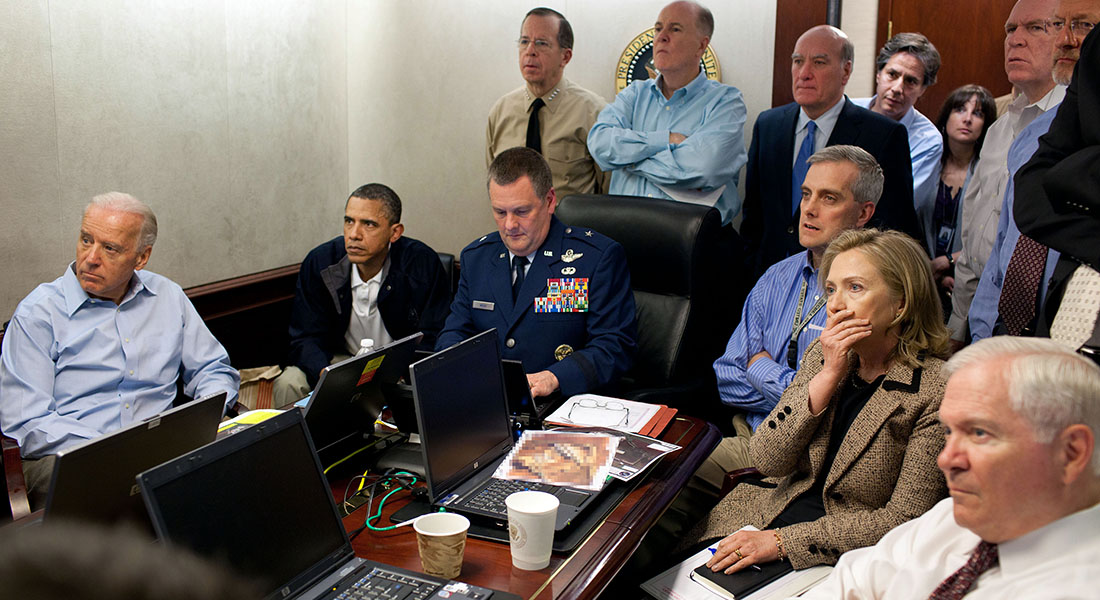Images and International Security

THE PROJECT IS CLOSED
Project period: 2013-2018
Principal Investigator (PI): Lene Hansen
The project has examined how images – video, photos, cartoons and posters for example - come to stand at the center of international security. Some images are produced as part of a deliberate media strategy by governmental and non-governmental actors. Other images become the subject of political contestation even though it is hard to identify strategies and intentionality. The project has shown how images move across state borders and how social media has expanded the number of images that can be produced and circulated. Images have the capacity to invoke emotions and the project has examined the ways in which this leads to calls for political action. The project has developed theory and methods through which specific, iconic images as well as large numbers of images can be examined. The project has produced theory, method and analysis of for example terrorist videos, diplomatic processes, and the iconic photo of Alan Kurdi.
The main purpose of the project was to bring the study of visual representations into the field of International Relations. When the project began in 2013, there was very little research on images in International Relations, including its subfield of Security Studies. As a consequence, the project has developed theory that captures how images matter for international security politics. The project has deepened our understanding of how images constitute certain issues and events as matters of security and how particular images become securitized. The project has developed new concepts, such as “the global icon” to capture how images like the Abu Ghraib photos spread through social and traditional media and how this puts pressure on political leaders. The project has generated new methodologies that enable qualitative analysis of the relationship between texts and images and on the ways in which images can mobilize audiences.
The project was organized around three research projects. The first research project asked how governments negotiate the policy meaning of emotional images depicting humans during military conflict. The second research project examined how governments and diplomats handle crises generated by images. The third project addressed the use of images to support the acceptance of new, non-military security threats. A cross-cutting concern of all projects was how to theorize the “impact” of images on foreign policy and how to theorize emotions as social and collective rather than (only) individual and psychological.
Several important questions appeared during the course of the project. Some questions were generated by our conceptual-theoretical work on how to capture “impact” and “emotions” for example. Other questions arose in response to the growth in social media and the rise of actors such as Islamic State. Social media enable immediate circulation and play an important part in the production of “instant icons” such as the photo of the drowned Kurdish-Syrian toddler Alan Kurdi in 2015. The project has also examined the challenges and opportunities that social media and visual representation presents to diplomats and diplomatic practice. Another key theme of the project has been how gendered security problems and identities – of soldiers as well as feminist activists - are formed and circulation through photos, video and posters.
Principal Investigator
Lene Hansen, Professor, Department of Political Science, University of Copenhagen.
Internal researchers
Rebecca Adler-Nissen, Professor, Department of Political Science, University of Copenhagen.
Simone Molin Friis, PhD fellow, Department of Political Science, University of Copenhagen.
Alexei Tsinovoi, PhD fellow, Department of Political Science, University of Copenhagen.
Dean Cooper-Cunningham, PhD fellow, Department of Political Science, University of Copenhagen.
Katrine Emilie Andersen, Scientific assistant, Department of Political Science, University of Copenhagen.
External researchers
Iver B. Neumann, Montague Burton Professor, London School of Economics and Political Science (LSE).
Megan MacKenzie, Professor, University of Sydney.
Michael C. Williams, Professor, University of Ottawa.
A list of publications can be viewed here.
For further research related to Images and International Security, see Bodies as Battleground: Gender Images and International Security (Principal Investigator Professor Lene Hansen).
Principal Investigator
Professor Lene Hansen
Department of Political Science
University of Copenhagen
Mail: lha@ifs.ku.dk
Phone: +45 35 32 34 32

